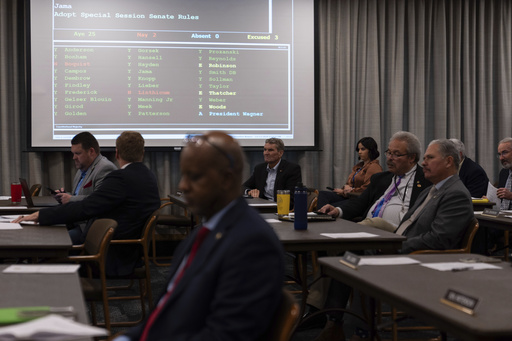
Oregon legislators have allocated $218 million in emergency funding to address outstanding bills from the state’s catastrophic wildfire season in 2024. This decision was made during a special assembly that took place on Thursday, aimed at managing the financial aftermath of a season that set unprecedented records for wildfire damage.
As wildfires continue to affect California, Oregon is not alone in confronting significant expenses tied to wildfire response efforts. In July, New Mexico’s legislators also approved millions in emergency aid for those impacted by wildfires, while states like North Dakota and Wyoming have sought federal disaster declarations to help alleviate recovery costs.
According to Governor Tina Kotek, the battle against wildfires that ravaged a staggering 1.9 million acres—equivalent to nearly 2,970 square miles—predominantly in eastern Oregon, incurred costs exceeding $350 million. This financial burden has made it the priciest wildfire season in the state’s history. Kotek’s office noted that while more than half of these expenses will ultimately be reimbursed by the federal government, Oregon still needs funds upfront to settle its bills.
“It has been an unprecedented wildfire season, and we lacked the necessary funds to cover all our expenses. It was essential for Oregon to ensure these bills are settled, particularly with the holiday season approaching,” stated state Senator Kate Lieber, co-chair of the joint budget committee, during a press conference.
The emergency funding legislation received bipartisan approval, with the Senate voting 25-2 and the House 42-2, along with 15 members excused from voting. “Both Republicans and Democrats united to show that our firefighters must be compensated,” remarked GOP state Representative Jeff Helfrich in a release following the vote. “This bill serves the courageous individuals who risk their lives to protect our communities.”
This year’s wildfires resulted in the destruction of at least 42 homes and devastated extensive areas of grazing land in rural eastern Oregon. The Durkee Fire, which burned around 460 square miles near the Oregon-Idaho border, temporarily held the title of the largest wildfire in the country.
In response to wildfire threats, Kotek declared a state of emergency in July, invoking the state’s Emergency Conflagration Act a record 17 times throughout the wildfire season.
The approved $218 million, as requested by Kotek, will be allocated to the Oregon Department of Forestry and the Oregon Department of the State Fire Marshal to ensure they can maintain operations and compensate contractors who played vital roles in managing the wildfires.
State Representative Mark Owens, who represents areas adversely affected by the fires, highlighted that many contractors are small business owners struggling to meet payroll and manage credit lines. “This should serve as a critical reminder to us all—we cannot let this occur again,” he stressed.
This special session comes as lawmakers are preparing for the new legislative session starting in January, during which they will need to identify sustainable funding sources for the growing wildfire expenses exacerbated by climate change and worsening drought conditions in the western United States.
Senate Minority Leader Daniel Bonham pointed out that future lawmakers should ensure sufficient wildfire funding is readily available without needing to call special sessions. “The threat of wildfires will persist if we do not take decisive action,” he stated.
Kotek has proposed that the upcoming legislative session focus on increasing funding for wildfire preparedness and mitigation by $130 million in the next two-year budget. Additionally, she requested that $150 million be temporarily redirected from the state’s rainy day fund to fire agencies to support wildfire suppression efforts.
While 2024 marked a record-breaking year in terms of wildfire costs and acreage affected, the 2020 wildfire season is still remembered for being one of the most devastating natural disasters in Oregon’s history, resulting in nine fatalities and the destruction of over 5,000 homes and structures during the catastrophic Labor Day weekend fires.
